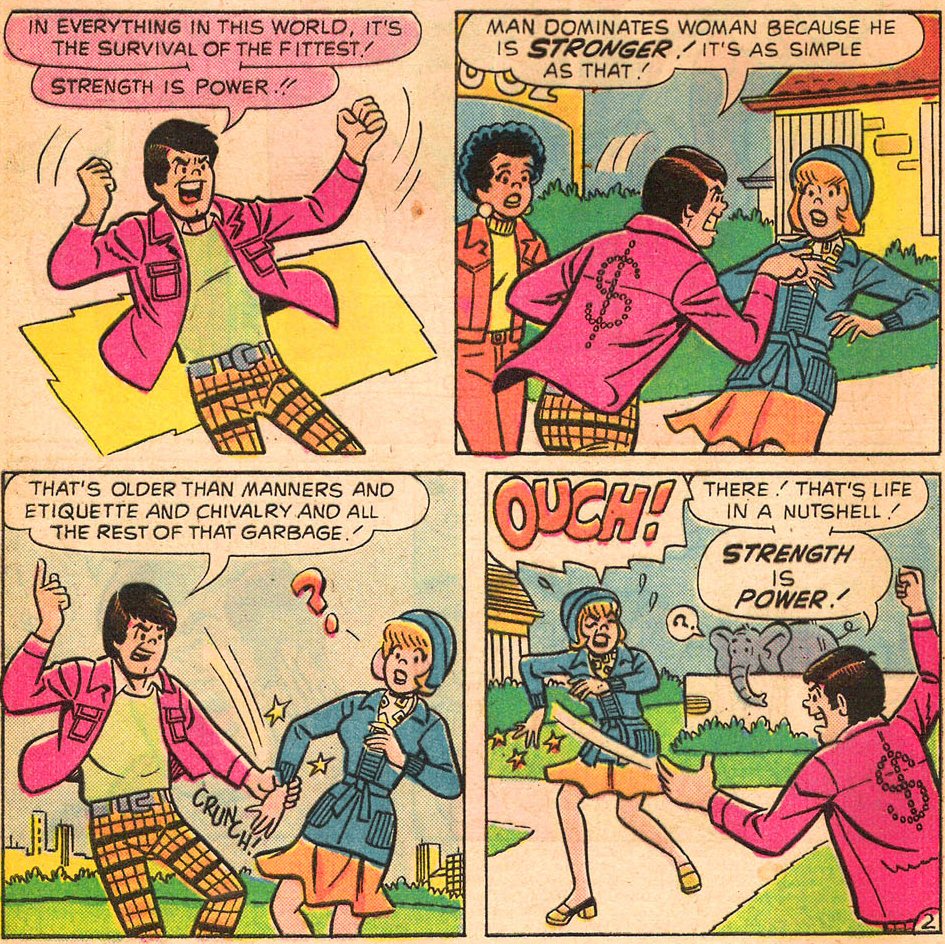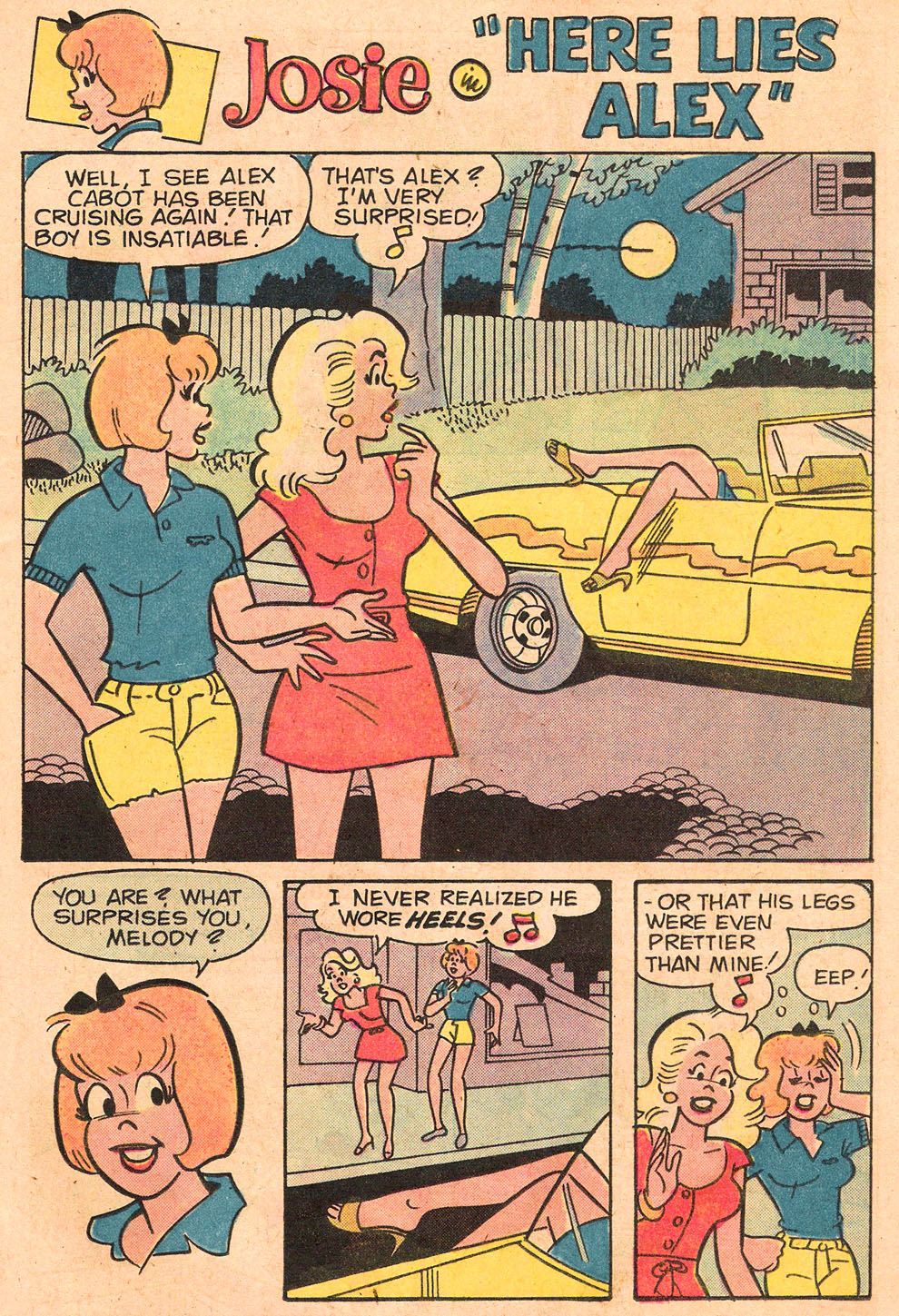 In his collection of Unpopular Essays, the philosopher Bertrand Russell discussed the phenomenon he called "the superior virtue of the oppressed," by which the marginalization of certain groups is justified by the attribution of certain intrinsic moral characteristics to those being oppressed. The inherent "compassion" of women, for instance, which allegedly made them ill-suited for pursuits where a degree of ruthlessness is needed, or the enduring patronization of the "noble savage" myth.
In his collection of Unpopular Essays, the philosopher Bertrand Russell discussed the phenomenon he called "the superior virtue of the oppressed," by which the marginalization of certain groups is justified by the attribution of certain intrinsic moral characteristics to those being oppressed. The inherent "compassion" of women, for instance, which allegedly made them ill-suited for pursuits where a degree of ruthlessness is needed, or the enduring patronization of the "noble savage" myth.
What happens, though, when those "virtues" and the concept of "oppression" are self-applied, rather dubiously, via conscious decision?
While I think that writer Chris Claremont's run of X-Men stories are, at least until 1986 or so, pretty entertaining reads, the concept behind the team -- mutant outcasts fighting for a world that hates them -- never really appealed to me. Despite the tendency in some circles to elevate the stories into some grand parable about civil rights, I suspect that the real meat and bones behind the franchise's evergreen appeal is that it speaks so clearly to the anxieties of the adolescent nerd, with protagonists who operate on the fringes of an unsympathetic society and marked for great things though genetic happenstance.
What specifically put me off of the X-Men is the characters sense of insularity. For all the lofty talk of tolerance and equality, the team seemed to revel in their outsider status: "We're X-Men. You're human, you wouldn't understand." Unlike, say, the Avengers, whose membership was open to androids, mutants, rednecks, and even Wonder Man, the X-Men were an echo chamber of melodrama less concerned with asserting their place in society than in endless navel-gazing about their special status....a status predicated on genetic superiority and exclusiveness.
In my travels through the harsh badlands of nerdity, I saw a lot of "outcast as elitist" mentality amongst my peers. It wasn't enough to find a community of like-minded souls or simply accept that one's tastes were skewed differently from the masses' baseline, there had to be a cosmic reason for it, rooted in a "us versus them" mentality. There are many valid reasons why some marginalized and persecuted groups and individuals might turn a bit insular. Growing up closeted in a ultra-homophobic environment, for example, would understandably lead to a certain sense of guardedness. The head cheerleader making fun of your Boba Fett t-shirt? Not so much. It would be one thing if it manifested as a egalitarian pan-geek celebration, but in practice the insularity has taken the form of a hierarchy of fan-tustans, judged from inside the barricades of each individual microcosm; videogame geeks look down on comic book geeks who look down on roleplayers who look down on videogamers.
When you factor in the pervasiveness of power fantasies within the scene's holy scriptures, it's shouldn't come as a surprise -- though it does for many people -- that there's a disturbing undercurrent of crypto-fascism amongst (mostly male) nerds that manifests itself in many troubling ways:
- The unironic appreciation of the anti-hero/bad ass/monster in heroic clothing. ("...and then he tortured the bad guy by slicing the dude's balls off! That's how the cops should do things in real life!")
- Celebration of violent masculinity (usually coupled with mockery of feminism or homosexuality). ("It makes no scientific sense for a female character in a fantasy game where orcs and dragons exist to have the same maximum strength score as a male!")
- An infatuation with a mythologized reactionary past, with apologias regarding totalitarian or militarist regimes and leaders. ("Hitler's mistake is that he should have dropped his hatred of the Jews and concentrated on the Soviets...")
All the above behaviors (and more) were witnessed during my stint as president of the campus sci-fi club. I took the job specifically to keep it out of the hands of those who wanted those quite pathetic vestments of authority too much, and my approach to leadership was hands-off in the extreme. Even still, I had a hard time shaking off the efforts of the rank and file who wanted to build a cult of personality around me. (Yeah, I know. It shocked the hell out of me, too. I had to sneak out of the club room when I went record shopping, lest an uninvited retinue follow me to Central Square.)
Things went south after I started dating Maura and neglected the vicarious needs of my flock, who then gravitated to a master of braggadocio (GTA IV players: Imagine a real-life Brucie). Within a matter of weeks they were reciting his bullshit sex-and-violence stories with awestruck reverence, declaring war upon his "enemies," and mimicking his leather-jacket-and-combat-boots mode of dress. I quit showing up after that, but I'm certain the party armbands were printed up not long afterwards.
Nick Lowe - Little Hitler (from Jesus of Cool, 1978) - Um, actually, this pop rock gem falls outside the established Third Reich canon. You'd know that if you read my Naziwiki page.
(The above ruminations were unabashedly inspired by the talented Dave Lartigue's far superior post featured here.)












